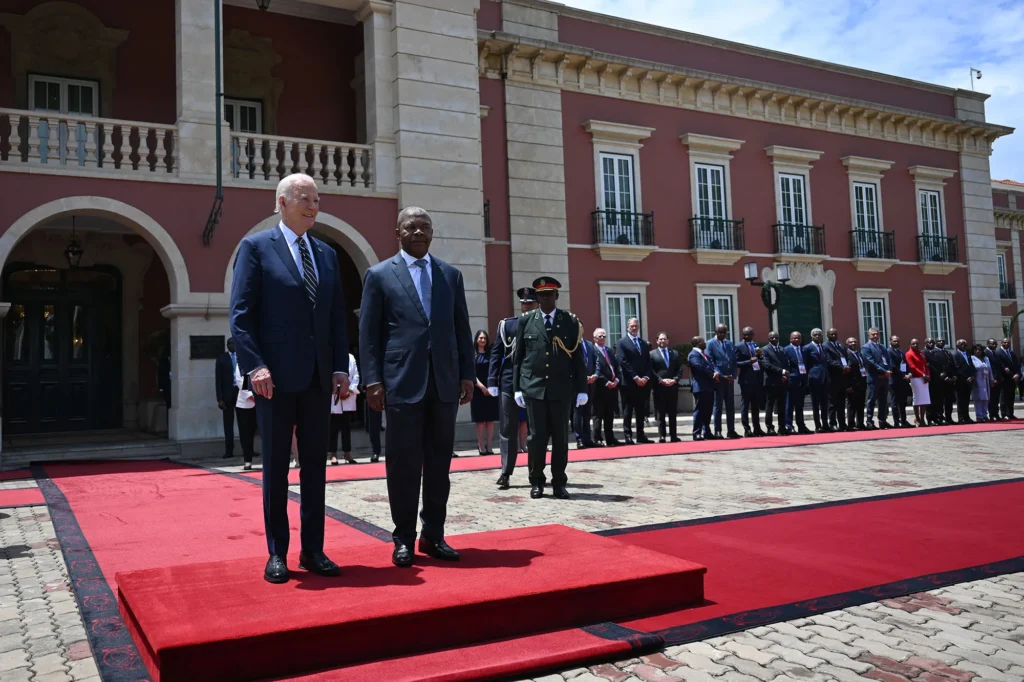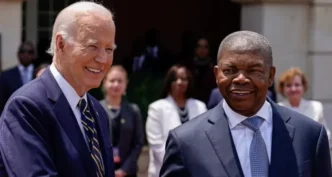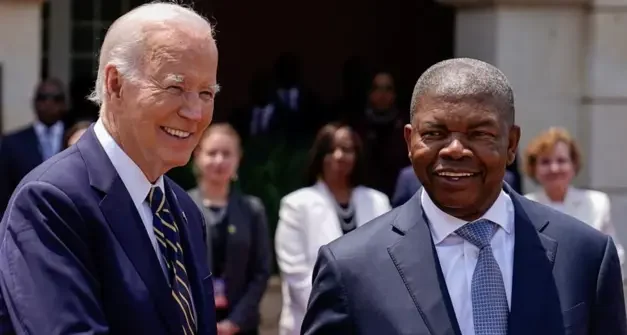President Joe Biden recently made his first visit to Angola, marking a historic moment in U.S.-Africa relations. Biden’s Angola visit underscores the United States’ growing commitment to the African continent, signaling a deeper partnership.
This trip highlights both nations’ focus on trade, security, and infrastructure development. With a firm commitment of billions of dollars for key projects, Biden’s Angola visit illuminates the United States’ role in Africa’s future.
U.S. Strategy for Africa: Joe Biden Angola Visit Strengthens Ties
During the Joe Biden Angola visit, the U.S. president expressed, “The United States is all in on Africa.” This audacious declaration made clear that the United States government wanted to help Angola develop.
Biden’s visit has significant implications for Angola’s development, particularly through the redevelopment of the Lobito Corridor railway.
The project, a $3 billion commitment, aims to boost infrastructure and facilitate the movement of critical minerals, thus benefiting Zambia, Congo, and Angola. This effort directly competes with China’s influence in the region.
Biden and Angolan President João Lourenço discussed key areas, including security, energy production, and economic cooperation. Lourenço acknowledged the importance of the Joe Biden Angola visit, calling it a “turning point” in their bilateral relationship.
President Biden also made it clear that the U.S. wasn’t simply challenging China; rather, it sought reliable, sustainable investment opportunities that Angola and other African nations could rely on.
“We’re not asking countries to choose between us and Russia and China,” Biden said. Instead, he stressed on a more cooperative approach.

Strategic Focus on Infrastructure and Security
The Lobito Corridor, part of the Biden Angola visit’s focus, symbolizes the U.S. commitment to Africa’s infrastructure development. The railway’s 1,300 kilometers will connect Angola’s port with mining hubs in Zambia and the Democratic Republic of Congo.
This project is a critical element of U.S. strategy in the region, aiming to enhance trade and secure access to vital resources like minerals used in electronics, batteries, and clean energy. Biden’s involvement showcases a strategic shift in U.S. foreign policy toward Africa, poiting to a long-term investment in the continent’s future.
Furthermore, Biden’s visit included a stop at Angola’s National Slavery Museum, where he acknowledged the history of the transatlantic slave trade. “Together, the United States and Angola acknowledge the past horrors of slavery and its legacy, while looking forward to a bright future,” Biden remarked.
The trip also reinforced Biden’s message from the 2022 U.S.-Africa Summit, where he declared, “The future of the world is here, in Africa.”
Joe Biden Angola Visit: Strengthening U.S.-Africa Relations for a Prosperous Future
As Biden’s visit continued, the focus remained on strengthening U.S.-Angola relations. While the trip’s geopolitical implications were evident, the tangible benefits of infrastructure projects like the Lobito Corridor were equally important.
Biden’s commitment to Africa, particularly in Angola, signals a strategic effort to balance China’s growing influence in Africa. This partnership not only boosts Angola’s economy but also supports U.S. global interests.
At the end of his trip, Biden reiterated his commitment to a prosperous future for both countries. “I’m very proud to be the first American president visiting Angola,” Biden said. As U.S. officials and Angolan leaders discussed future investments, both sides shared optimism for deeper collaboration.
Biden’s visit is expected to lead to more public-private partnerships, especially in energy production, and enhance U.S. engagement in the region.
The Joe Biden Angola visit shows how important Africa’s future is to global politics. Can this partnership pave the way for a new era of U.S.-Africa collaboration?
Let us know your thoughts in the comments below!
Read More:















